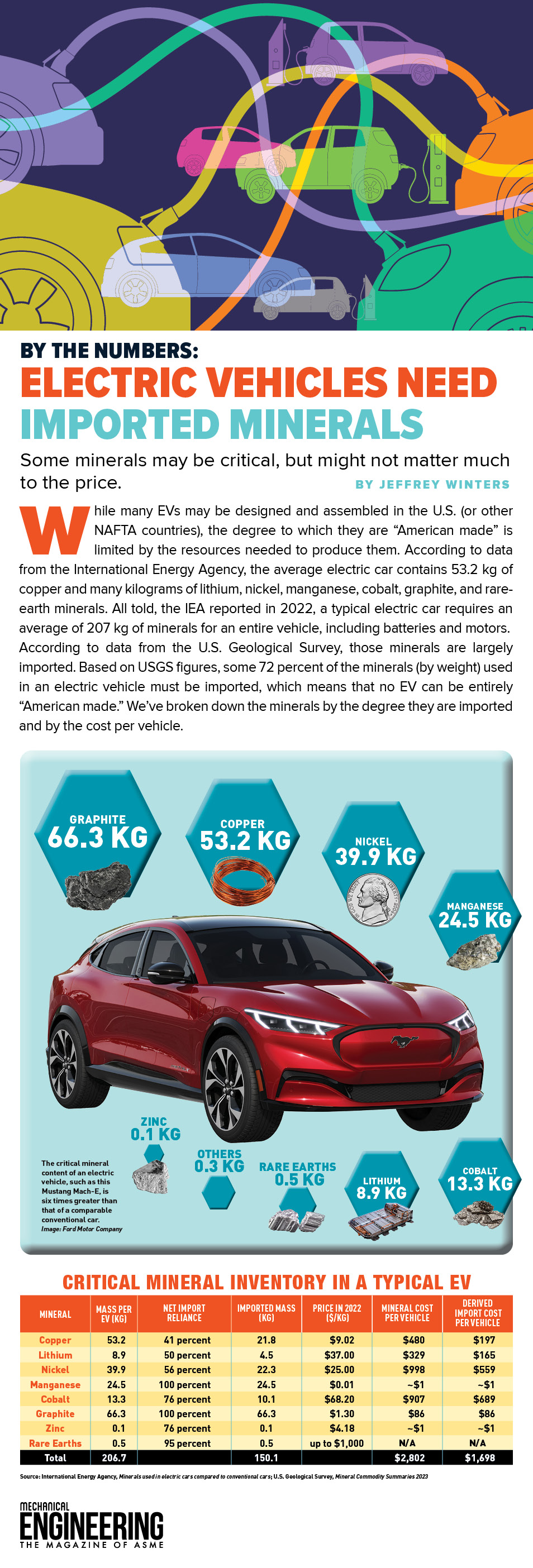Infographic: Electric Vehicles Need Imported Minerals
Infographic: Electric Vehicles Need Imported Minerals


Some minerals may be critical, but might not matter much to the price.
While many EVs may be designed and assembled in the U.S. (or other NAFTA countries), the degree to which they are “American made” is limited by the resources needed to produce them. According to data from the International Energy Agency, the average electric car contains 53.2 kg of copper and many kilograms of lithium, nickel, manganese, cobalt, graphite, and rare-earth minerals. All told, the IEA reported in 2022, a typical electric car requires an average of 207 kg of minerals for an entire vehicle, including batteries and motors.
According to data from the U.S. Geological Survey, those minerals are largely imported. Based on USGS figures, some 72 percent of the minerals (by weight) used in an electric vehicle must be imported, which means that no EV can be entirely “American made.” We’ve broken down the minerals by the degree they are imported and by the cost per vehicle.
According to data from the U.S. Geological Survey, those minerals are largely imported. Based on USGS figures, some 72 percent of the minerals (by weight) used in an electric vehicle must be imported, which means that no EV can be entirely “American made.” We’ve broken down the minerals by the degree they are imported and by the cost per vehicle.




